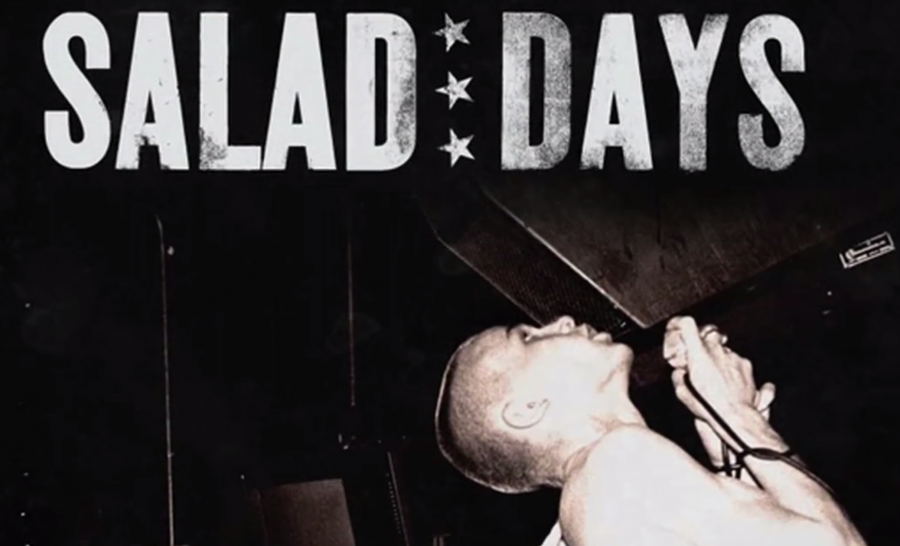This post has been updated.
After making the rounds at film festivals and showings worldwide, D.C. punk-rock documentary Salad Days: A Decade of Punk in Washington DC is now available for purchase on Vimeo. But that’s just one of the many downloads floating around the Internet, according to director Scott Crawford. He says Salad Days has been stolen widely online before its formal release later this year.
“There have been multiple versions of the film posted all over torrents and YouTube,” emails Crawford, who used to edit Bandwidth. “Overseas even worse. Really bums me out.”
Crawford and director of photography Jim Saah (who both appeared on a Salad Days panel I moderated for NPR in May) began selling downloads of the film on Vimeo for 30 days starting Aug. 4. It comes out on DVD in September, followed by Hulu, On Demand and other services, Crawford says.
But in the months leading up to the film’s release, multiple cuts of Salad Days have popped up illegally online. Crawford says he started noticing them about two months ago. “The versions I saw were ones sent to film festivals as well other versions along the way,” Crawford writes. He says he doesn’t know how pirates got their hands on copies; he says it “could be anything.”
When I checked today, torrent search engines Kickass Torrents and The Pirate Bay yielded more links for Mac DeMarco‘s 2014 album Salad Days than links obviously related to Crawford and Saah’s documentary, but the torrent universe is vast, and not all files may be labeled accurately. The same could be said about YouTube. Update: Crawford says that the film’s distributor, MVD Entertainment Group, had the illegal links taken down.
Online pirating of music has been a hot-button issue since the dawn of file-sharing services like Napster. But music fans might not know as much about the impact of movie pirating. An Indiewire op-ed written by Ruth Vitale of anti-piracy group CreativeFuture and Alamo Drafthouse Cinema CEO Tim League says illegal downloading could be partially responsible for a recent decline in film releases.
“Whether you’re employed by a major studio or a do-it-yourself creator, if you’re involved in the making of TV or film, it’s safe to assume that piracy takes a big cut out of your business,” the op-ed says.
It doesn’t sound like Crawford expected a certain amount of pirating. When he first saw people illegitimately distributing his film, he says he “was pretty shocked, actually.”
Salad Days debuted in New York in 2014, later selling out a string of local showings at AFI Silver Theatre in Silver Spring, Maryland. It’s traveled extensively since then, screening in dozens of U.S. cities as well as Canada, Russia and Argentina. The documentary covers the early years of D.C.’s storied punk-rock scene, talking to musicians, venue operators, label owners and fans about the development and cultural impact of punk in the capital region.
Asked how pirating has affected his bottom line, Crawford writes, “[It’s] really hard to say.”
Crawford and Saah ran a successful Kickstarter campaign for Salad Days in 2012, raising nearly $55,000 to produce the documentary. But that hasn’t been enough for the filmmakers to break even, the director says.
Income from Salad Days is “not even close to covering the costs of the film,” Crawford writes.
The documentary Salad Days: A Decade of Punk in the Nation’s Capital is available on Vimeo for a limited time and on DVD starting Sept. 18.


